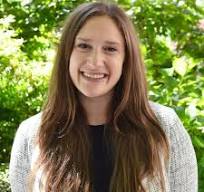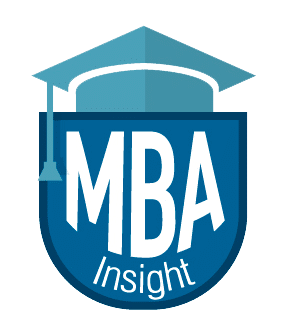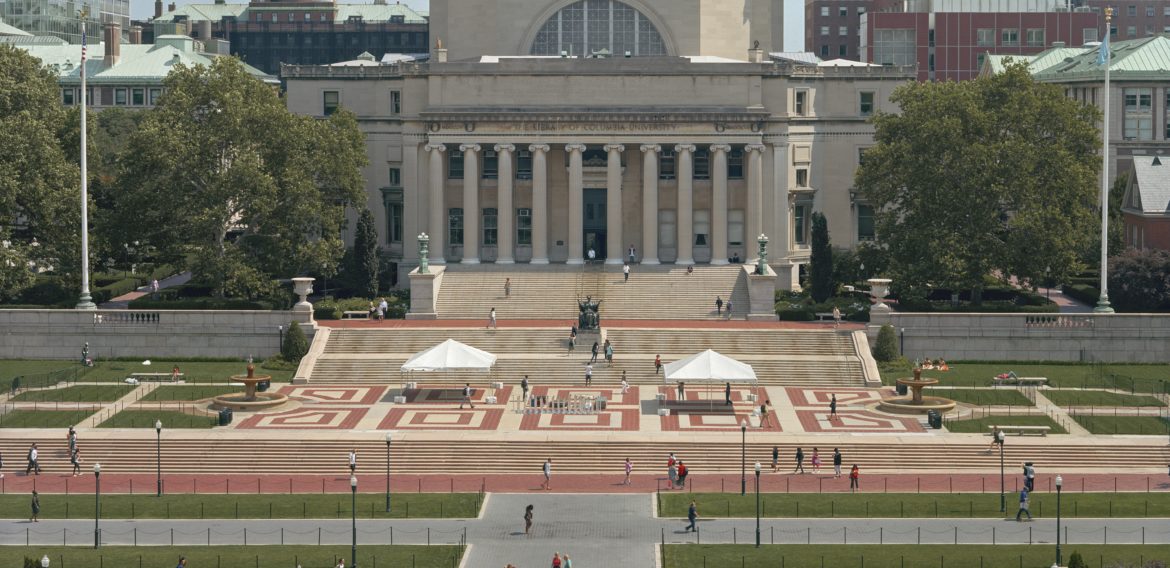Q&A WITH COLUMBIA’S DIRECTOR OF MBA ADMISSIONS
Jordan Blitzer, Director of Admissions at Columbia Business School 1) What’s the single most exciting development, change, or event happening at your MBA program this coming year? Dean Maglaras’s strong leadership in climate has already led to the launch of the Open Climate Curriculum Initiative, which aims to accelerate the pace at which business schools teach courses that equip leaders to address climate change, and the Climate Knowledge Initiative, which develops and publishes timely and data-driven insights for businesses to accelerate strategies towards net zero emissions. As someone who reads hundreds of admissions files, I am confident that many of our prospective applicants and students will be even more enthusiastic about the Tamer Institute in the coming year and beyond. 2) What 2-3 qualities, skill sets, experiences do your program value most in applicants? 4) Do you have any application tips (for essays & recommendations) for MBA applicants? 5) How important is standardized testing for an MBA application to CBS, and is there a preference for GMAT, GRE, EA for your full-time program? We are test-agnostic, where the GMAT, GRE, and EA, are considered with equal importance. While we don’t provide exam waivers for our MBA program, we do give students the flexibility to submit scores from the test in which they performed the best. We encourage applicants to report all their scores, allowing us to observe any positive trends in score progression. 6) What resources are available at your MBA program to assist with internship and full-time job opportunities (or to advance their Career Path)? 7) Favorite Hangout for CBS’s students? 
Here at Columbia Business School, we are continuing our investment in research and education to transform how business impacts climate with the goal of empowering our MBA students with cutting-edge knowledge and skills on the subject. In the spring of 2024, CBS launched a transformative new campus institute that will address the immediate need for climate research and education in business to accelerate the decarbonization of the global economy. The Tamer Institute for Social Enterprise and Climate Change, is an innovative hub uniting the expertise of Columbia University’s Climate School, the School of International and Public Affairs, and Columbia Engineering. The Institute will also continue the previous activities of the Tamer Center for Social Enterprise, which was established in 2015 to address social and environmental challenges.
We seek candidates who favor collaboration over competition, those who are forward-thinking and driven by the desire to innovate and shape the future. They should also have a mindset of confidence and can foster a sense of accomplishment within our community. We also look for students who are naturally curious and inquisitive, who are changemakers driven by a passion to discover the unknown and empower others to feel prepared to explore new ideas and solutions. Sorry, it’s hard to keep it to two to three.
3) How does your team approach the essay portion of the application specifically? What are you looking for as you read the essays? Are there common mistakes that applicants should try to avoid? One key thing they should keep in mind as they sit down to write them?
Essays are among our favorite components of the application since they offer us a glimpse into who the applicant is and how they might contribute to our community. When crafting the essays, applicants should ensure they address the prompt directly. A helpful tip is to share the rough drafts, and even final drafts, with someone who knows you well but is not directly involved in the application process or knows the essay prompts. This can help gauge if the essence of your answer and your motivations shine through. I often remind students to revisit their essays during their time in the program. Looking back on them can be an important reminder about their initial intentions and aspirations so that these goals can remain priorities once they become students.
We value the essays as they reveal who the applicant is and how they might contribute to our community. As said before, applicants should directly address the essay prompts, sharing drafts with someone who knows them well but is not involved in the application process for unbiased feedback. Don’t be afraid to iterate, it’s important! Self-reflection, transparency, and genuine expression are crucial in creating impactful essays.
When choosing recommenders, it is important to select people who can provide a comprehensive view of the applicant’s abilities and character. They should be able to discuss and provide examples of communication skills, leadership, professionalism, teamwork, and strengths. Consider the benefits of choosing recommenders who can offer detailed insights on performance and potential versus seeking colleagues or connections with senior titles. This holistic perspective will provide a stronger, more nuanced recommendation.
The Career Management Center is dedicated to helping MBA students and alumni achieve their career goals through a range of services that help students discover various career opportunities. These include personalized career advising, resume support, interview preparation, and career-oriented workshops. The center also facilitates on-campus recruitment opportunities and connects students with job opportunities posted globally.
The Executives in Residence program links students with experienced leaders from various industries to share expertise in the classroom and via student clubs and advising. Students can also meet one-on-one with these executives to gain personal career advice and insights about their industry of interest. Many of our students find this to be an invaluable addition to their MBA experience.
Columbia Business School students enjoy New York City’s vibrant social scene, with thousands of restaurants and hangout spots throughout the city. Located in Manhattanville, near West Harlem, students can explore favorite local venues and easily access all of Manhattan via the nearby subway. That said, my personal favorite for meeting up with colleagues after work, or for lunch with a student, would be The Expat which is just a few blocks from campus.


